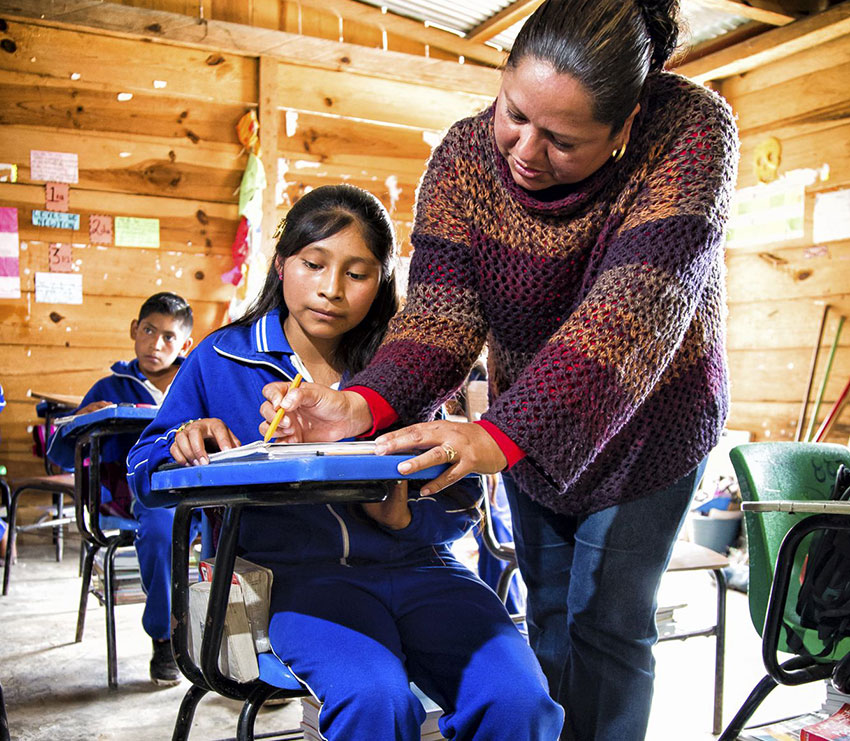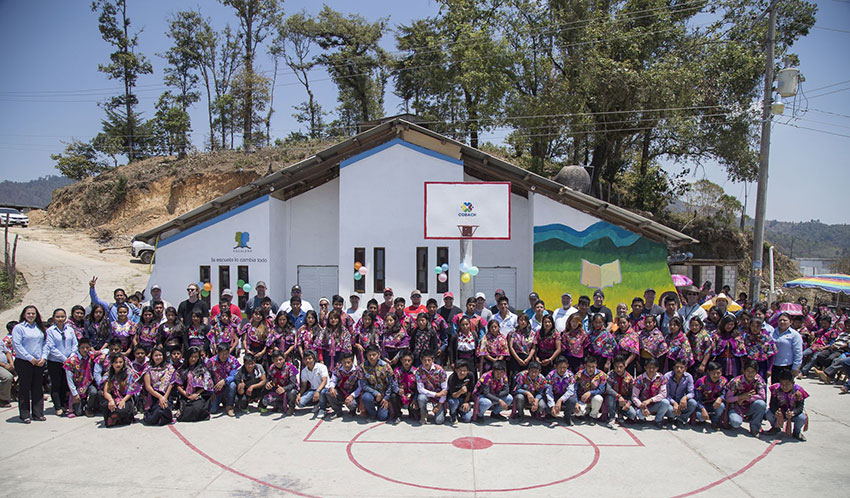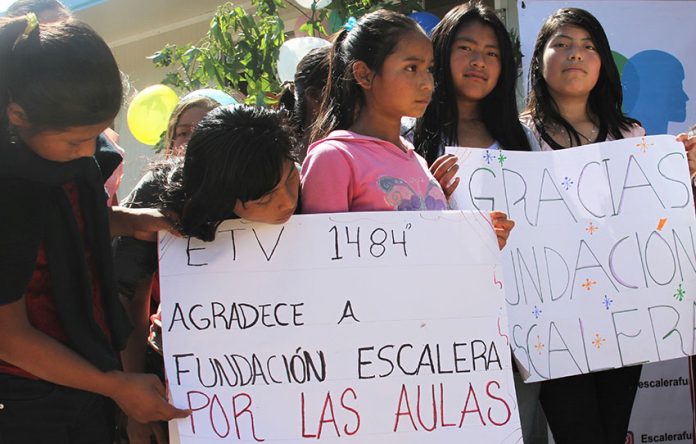The communities of Chiapas are known for their unique political development, strong sense of autonomy and rejection of the Mexican state.
They are also known for their extreme poverty and neglect suffered at the hands of official institutions and government. Almost 80% of the state lives in poverty and one in five of its residents is illiterate.
For every 100 students who start first grade only 35 will graduate from high school and only eight will graduate college. The support required for students that want to get an education in the isolated areas of this southern state is an incredible challenge, but the Escalera Foundation is trying to meet it.
Escalera has a classic founding story. A family of good-hearted missionaries took a service trip to Mexico 20 years ago to build a rural school. They were struck with a desire to help students and started building schools in needy communities. Through their work, they found that the lack of access to education was much more complex than they thought and infrastructure was just the tip of the iceberg.
It could have ended there. A few good-intentioned foreigners that tried something that didn’t turn out the way they hoped. But the Garbett family of Utah wasn’t about to give up. They were determined to work out the most efficient way to help these students, with a program that would be culturally appropriate and scientifically proven to produce results.

Their first pivot was from building schools to supporting ninth-grade students entering high school with scholarships. Their pilot program combined motivational classes to explain why going on to high school was important, and cash payments for the students.
Through rigorous testing they found that the effect of the motivational classes was negligible. So instead of continuing with a bulky program they got lean and started simply offering the economic support – what in the end had the most effect on the students’ lives.
Ten years later, this program, called REACH, is still going strong with 2,700 students set to receive scholarships in 2020. The organization is now supporting their students for all three years of high school and they provide a voucher to pay for high school entrance exams – something they found was one of the biggest barriers for many students.
In conjunction with statewide educators, Escalera has now expanded their work to include an entrepreneurial curriculum for high schoolers.
“Most entrepreneurial programs are focused on business skills,” says Myriam Hernández, the organization’s current director of policy and development, “how to price things, make a budget, run a business. But business skills alone won’t make any difference if you really want to see social change.”
The Escalera Foundation program combines these more practical skills with the creative thinking and problem solving skills that they’ve found spell success on an intellectual and emotional level. The program focuses on growth mindset, says Hernández, which is the idea that if you fail, you can always try again and succeed.

“In the traditional education system we’re told we are good at one thing, one thing only,” she says. “And if you’re not good in math in grade school you grow up thinking that’s not your thing so you kind of drop it. Growth mindset says embrace feedback, embrace failure as an opportunity for learning. It relies on the newest neurological studies that show the brain is malleable. And there are skills we can still learn throughout our lives.”
After testing a pilot program in eight schools in 2019, 2020 will be the first year with the full program implemented in 20 different schools serving 500 students. Escalera continues to tweak the curriculum to be more culturally and community specific. One way they do that is through randomized control trials or RCT.
The application of RCT to social change programs was first promoted by Esther Duflo at MIT, an idea that won her the Nobel Economics Prize for Poverty Reduction. Duflo and her partner, economist Abhijit Banarjee, took the RCT method, more commonly known for testing new medical drugs, and used it as a way to track outcomes of social change programs using the behaviors of their participants.
“In the 20th century, randomized, controlled trials have revolutionized medicine by allowing us to distinguish between drugs that work and drugs that don’t work. And you can do the same randomized, controlled trial for social policy,” says Duflo. “You can put social innovation to the same rigorous, scientific tests that we use for drugs. And in this way, you can take the guesswork out of policy making by knowing what works, what doesn’t work and why.”
In 2003, Duflo and Banarjee started a network of poverty researchers called the Addul Latif Jameel Poverty Action Lab, or J-PAL, at MIT. Escalera was lucky enough to work with them on their new school curriculum.
Aware of their position as foreigners in a foreign land, the founders have been striving to build an organization that reflects their constituents and the unique needs of their programs’ participants. Nearly 100% of the field operators at Escalera are from Chiapas, the only outlier being Hernández, who is from Mexico City.
The organization works closely with community leaders, parent-teacher organizations, and state and local educators. Their work is hyper-localized in the Los Altos region of Chiapas and when I asked Hernández about community pushback, she said that sometimes it happens but they respect people’s choice to opt out.
“Mistrust is always the rule,” she explains. “We are seen as outsiders and when we come in and say we have money for you, they think we are behaving just like the government and we are going to follow that up with asking for votes. We have had communities reject us outright and that is fine … but what happens is that when you start working with 30 communities in different municipalities in very remote areas they start to see the positive effects [of the programs], they see our sustained commitment, and that we honor our promises.”
Supporting a student through three years of high school costs around US $86 a year, a small price to pay for a better education, improved quality of life, and more economic opportunities for these extremely marginalized communities.
To the over 25,000 students that have received a scholarship through the Escalera Foundation, this small sum has meant the chance of a lifetime.
Lydia Carey is a frequent contributor to Mexico News Daily. She lives in Mexico City.
